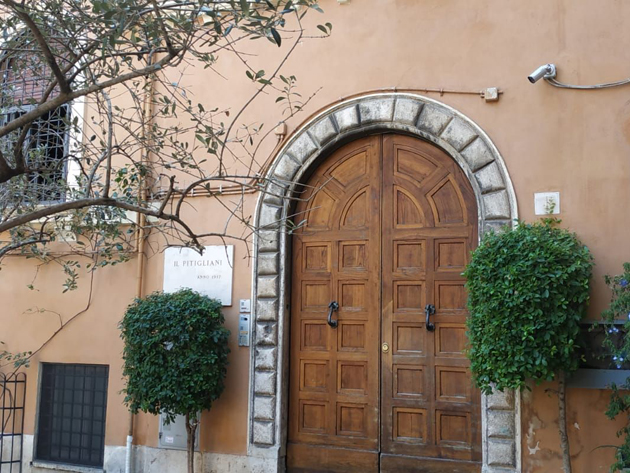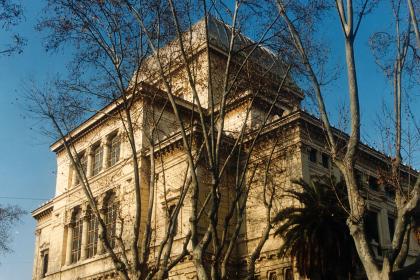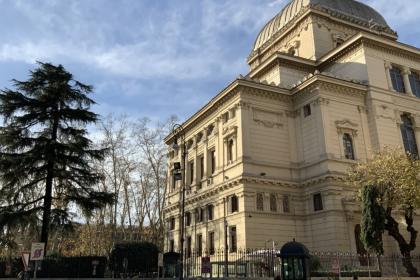
Founded on 29 June 1902, it is one of the longest-lived Jewish institutions, despite the many political and social changes it has witnessed throughout its history. Conceived as an orphanage to take in Jewish children and offer support to disadvantaged families, in the 1930s it was named after the industrialist Giuseppe Pitigliani and his wife Violante, financiers of the institute, which in the meantime had moved from Lungovere Ripa to the Palazzetto where it is still based today, in the heart of Trastevere and a stone’s throw from the Tiber Island.
Since its founding, it has welcomed and protected children from Rome and many other Italian cities, becoming a first reception center and temporary home for Jewish refugees from France in 1943, Libya in 1967 and Iran in 1979-80. Transformed into a Family Home from the 1980s to 1997, the Center continues to carry out its childcare mission to this day. Educational and didactic activities are inspired by the method developed by psychopedagogist Reuven Feuerstein, whose goal is the development of still unexpressed cognitive potential.
In addition to its historical mission, the Center devotes ample space to cultural activities, organizing events – conferences, book presentations, concerts, seminars, exhibitions and performances – aimed at spreading knowledge of Jewish culture and promoting intercultural dialogue. For example, one of the many projects carried out each year is the Pitigliani Kolno’a Festival, dedicated to Israeli cinematography and Jewish topics. The Center is also a member of the founding committee of the European Association of Jewish Community Centers (EAJCC), an international association whose purpose is to support and enhance the role and work of European Community Centers.
Vicolo dell’Atleta and the ancient synagogue
The Great Temple

 Condividi
Condividi
The old Jewish Quarter

 Condividi
Condividi
Information
Mon-Thur 9am-1pm and 2pm-4.30pm
Friday 9am-1pm
Closed Saturday and Sunday
 Condividi
Condividi
Location
To find out about all accessibility services, visit the Rome accessible section.











































